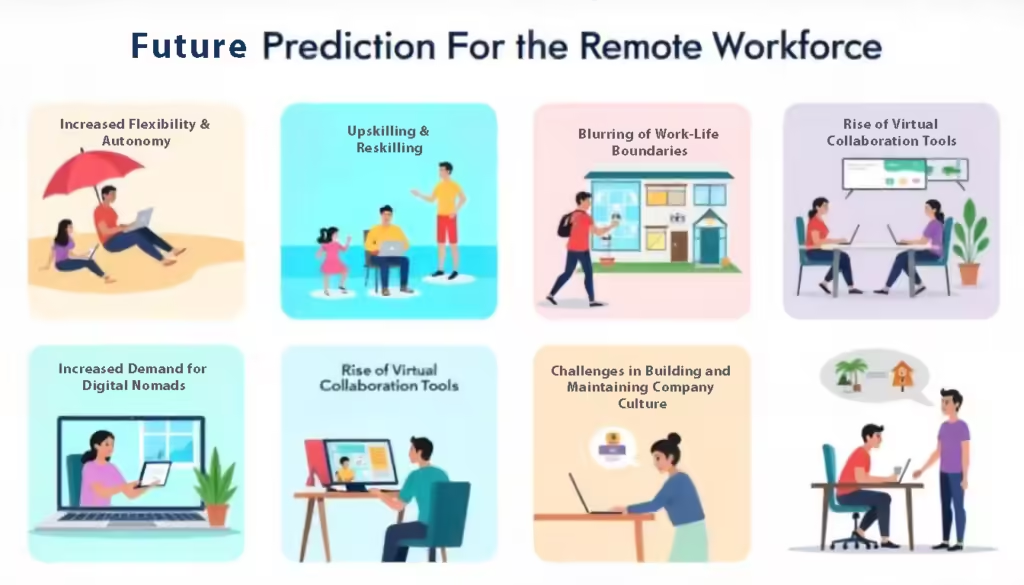A New Era of Work
The COVID-19 pandemic accelerated a trend that was already underway: the rise of remote work. As businesses adapted to lockdowns and social distancing measures, many discovered that remote work was not only feasible but also beneficial. This shift has fundamentally changed the way we think about work, and it is likely to have a profound impact on the future of the workforce.
Key Predictions for the Remote Workforce
- Increased Flexibility and Autonomy: Remote work offers employees greater flexibility and autonomy. They can set their own schedules, work from locations that suit their needs, and achieve a better work-life balance. This increased flexibility can lead to higher job satisfaction, productivity, and innovation.
- Upskilling and Reskilling: As the nature of work evolves, remote workers will need to continuously upskill and reskill to stay relevant. Online learning platforms and virtual training programs will become even more important in helping employees acquire new skills and knowledge.
- Blurring of Work-Life Boundaries: While remote work can provide greater flexibility, it can also blur the lines between work and personal life. It’s essential for remote workers to establish clear boundaries and create a dedicated workspace to maintain productivity and well-being.
- Rise of Virtual Collaboration Tools: Remote teams rely heavily on technology to communicate and collaborate. Virtual collaboration tools like video conferencing, project management software, and cloud-based document sharing will continue to play a crucial role in enabling effective remote work.
- Increased Demand for Digital Nomads: The rise of remote work has led to a growing number of digital nomads, individuals who work remotely while traveling. This trend is likely to continue as more companies embrace remote work and individuals seek greater flexibility and adventure.
- Challenges in Building and Maintaining Company Culture: One of the biggest challenges of remote work is building and maintaining a strong company culture. Virtual team-building activities, regular check-ins, and fostering a sense of community can help address this issue.
- Need for Strong Communication and Leadership Skills: Effective communication is essential for remote teams to succeed. Leaders will need to develop strong communication skills, provide clear expectations, and foster a culture of trust and collaboration.
- Government Policies and Infrastructure: Governments will need to adapt their policies and infrastructure to support remote work. This includes providing access to high-speed internet, updating labor laws, and addressing issues like tax implications and employee benefits.
Embracing the Future of Work
The future of work is likely to be characterized by increased flexibility, technological advancements, and a greater emphasis on skills and knowledge. As businesses and individuals adapt to this new reality, it is essential to embrace the opportunities and address the challenges that lie ahead.

Conclusion
The remote workforce is here to stay, and it is shaping the future of work in profound ways. By understanding these predictions and adapting to the changing landscape, businesses and individuals can thrive in the new era of remote work.



